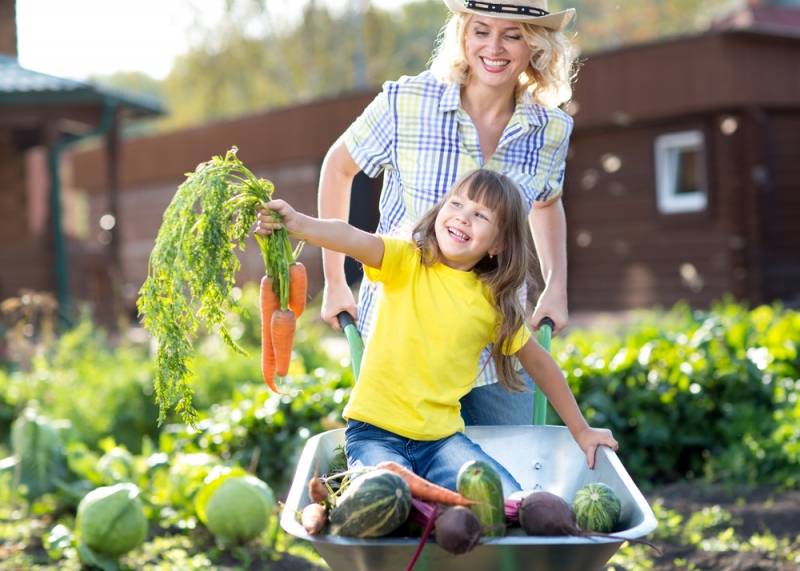
Educating Your Child Through Gardening — How Can It Be Done?
We’re all aware of the Digital Age and the fact that children are spending less time outdoors. It’s as important as ever for children to know that they can have fun outdoors too. And you don’t have to go far! As the lighter nights come in, spend time after school in the back garden or down at a local allotment and have fun whilst educating your children.
For Children in Early-Years
Playing in the garden is a great way to help with a child’s early-years development.
Encouraging your child to take part in messy play is one way it can help. There is an abundance of research behind the advantages of messy play and how this unstructured form of activity can really help your child develop. This can be done in the garden with sand, water or even mud! It’s all about breaking down the usual rules that your child might face, such as being restricted to a play mat or not being too disruptive with toys. Encourage your child to draw shapes with different (child-friendly) tools and their fingers in various materials — this can help children to build up their finger and arm muscles, which is useful for when they come to hold a pen.
The garden is home to new textures and experiences that a child may not have been exposed to before. They become used to handling solid objects, such as toys, and these are easy for children to learn because they don’t change shape. For example, letting your child come into contact with mud, a softer material, lets children broaden their knowledge and allows them to compare and understand new textures.
Overall Teaching
Children can often feel bogged down with their homework, why not make it fun and help them complete it outdoors? Your child might have spent all day behind a desk at school doing their work and it’s nice to have a break from this when they come home. Make it easy for your child to work outdoors by purchasing a gazebo or having a table and chairs outdoors where homework can be done. 85% of teachers reported that they saw a positive impact on their pupils’ behaviour when they were taught outside. In addition to this, 92% of pupils said that they preferred their lessons to be outdoors.
Studies have shown that pupils who have learnt outdoors have a better understanding of their responsibility for the environment.
Educate them on Healthy eating
Want to encourage your children to eat healthier? Grow some vegetables together. Research has also discovered that children who grow their own food are more likely to eat fresh fruits and vegetables or express a preference for that food. This can be a great way to improve their diet and get them outdoors.
Choose something that’s easy to grow to avoid disappointment. These include: strawberries, cabbage, radishes and potatoes. You can decide on the size of your patch and watch as your child runs outside to see what has grown that week.
Fun Jobs in the Garden for Children
Many children like to help out around the house and in the garden. Give them some tasks to do daily, or even weekly, and it’s likely that they’ll start to look forward to spending time in the garden.
Why not encourage them to grow a plant such as a sunflower? Each day your child can head outdoors to see how their plant is growing and practise some maths skills through measuring. This can be exciting for a child, as often the sunflower will grow taller than them!
Let your child help you keep things tidy. Let them trim the edges of your garden, water the plants or do some de-weeding — it’s a nice way to spend time together, too.
This article was created by Compost Direct, retailers of mulches and other garden essentials.
Sources
